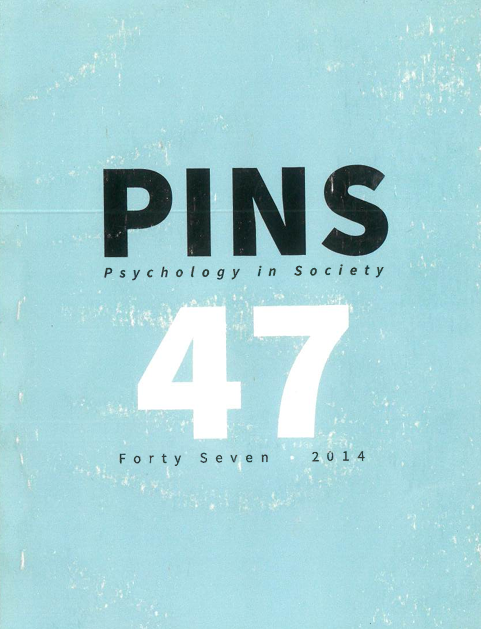SAPA, science and society: A debacle revisited
DOI:
https://doi.org/10.17159/2309-8708/2014/n47a3Keywords:
apartheid, critical discourse analysis, Psychological Institute of the Republic of South Africa (PIRSA), South African Psychological Association (SAPA), White English-speaking South African (WESSA)Abstract
Little is known about the first national association to be established for psychologists in South Africa: the South African Psychological Association (SAPA). While it is commonly assumed that Anglophone psychologists were politically enlightened in comparison with their Afrikaner counterparts, this paper attempts to illuminate the complexities of SAPA’s intellectual project. Offering a critical discourse analysis of eight presidential and opening addresses delivered at national congresses between 1950 and 1962, the paper identifies among SAPA’s Afrikaner presidents a preoccupation with a socially relevant psychology, enunciated in the form of a professionalist discourse that encouraged public service yet bore no trace of Christian-National influence. Among English-speaking psychologists, by contrast, social responsiveness was less of a priority in a discourse of disciplinarity concerned with fundamental debates in the field. It is suggested that these divergent conceptions regarding the role of psychology in society presaged the SAPA split of 1962 and provide, also, an important historical perspective from which to view a contemporary struggle within the discipline.
Downloads
Downloads
Published
How to Cite
Issue
Section
License
This journal is an open access journal, and the authors' and journal should be properly acknowledged, when works are cited.
Authors may use the publishers version for teaching purposes, in books, theses, dissertations, conferences and conference papers.
A copy of the authors’ publishers version may also be hosted on the following websites:
- Non-commercial personal homepage or blog.
- Institutional webpage.
- Authors Institutional Repository.
The following notice should accompany such a posting on the website: “This is an electronic version of an article published in PINS, Volume XXX, number XXX, pages XXX–XXX”, DOI. Authors should also supply a hyperlink to the original paper or indicate where the original paper (http://www.journals.ac.za/index.php/pins) may be found.
Authors publishers version, affiliated with the Stellenbosch University will be automatically deposited in the University’s’ Institutional Repository SUNScholar.
Articles as a whole, may not be re-published with another journal.
The copyright of the article(s) lies with the author(s).
The copyright of the journal lies with PINS-psychology in Society.
The following license applies:
Attribution CC BY-NC-ND 4.0 - https://creativecommons.org/licenses/by-nc-nd/4.0/

